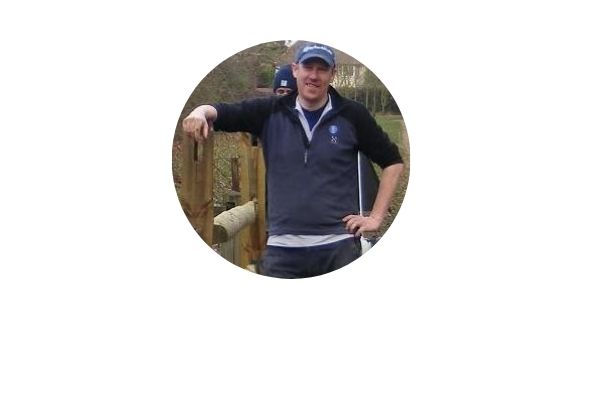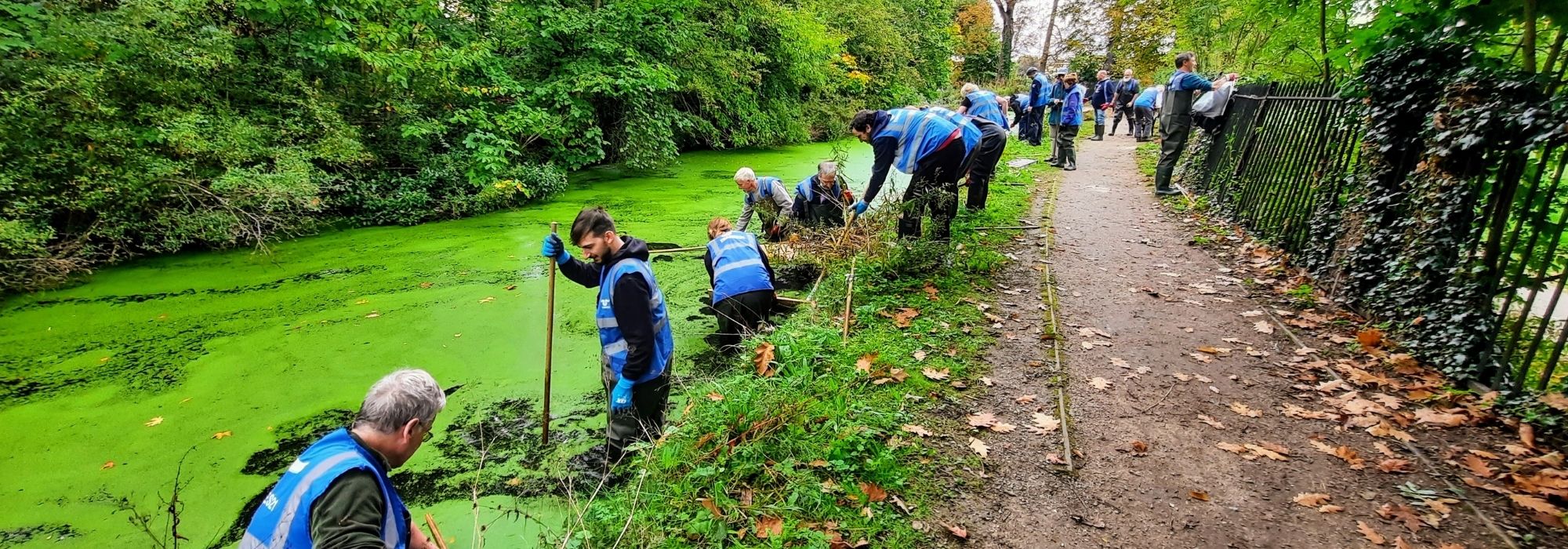Employee Spotlight on Gareth Chalmers
 “I really love to inspire people to make positive changes and differences in their lives.”
“I really love to inspire people to make positive changes and differences in their lives.”
Scientists increasingly recognise the benefits of blue and green spaces to improve wellbeing through exercise to reduce stress, improve mood and purpose, and meaning. In fact, nature has played a critical role in our mental health during the pandemic. As Mental Health Awareness Week gets underway, communications manager Liz Gyekye caught up with Nature Prescribing Officer Gareth Chalmers to discuss his role at Thames21 and to find out more about him.
Gareth is highly experienced in volunteer management and is a firm believer in connecting communities and bringing people together.
Liz Gyekye: Tell us a bit about yourself and your background?
Gareth Chalmers: I was born in Haverhill, Suffolk. So, I am basically a country bumpkin.
Essentially, I am a mixed bag of everything really. I have lived in Hampshire, I have lived in Essex and I have lived in Australia. I worked in a range of roles before joining Thames21. My father was in the army, but I choose to go into the navy when I was 16. In fact, I left school with no qualifications and stayed in the navy for around five years. When I came out of the navy I went into catering. After a stint doing that, I decided to train to become a teacher. However, I worked for PGL travel between my degree program and PGCE. Here, I got my passion for the outdoors. I stayed at PGL for seven seasons.
In my career, I have supported with training community groups and helped to run education programmes for The Conservation Volunteers (TCV) and outdoor education for children specialists PGL. At PGL, we used to teach what they called ‘Mission Earth’ – teaching about the environment to primary school children. This involved a set number of interactive learning modules across a week, which was interspersed with outdoor activities such as cannoning, climbing and abseiling. I really loved it here. After working at PGL, I then went to work for TCV, or BTCV as it was then, starting up Green Gym programmes. This is where I learnt about health through stealth.
The environmental sector can relieve mental health and stress. I enjoy watching people’s change in the time that they are with me.
Tell us about the nature prescribing programme?
We are working as part of a whole care package team.
Nature prescribing can entail linking individuals from mental health charities, health referral partners/primary care (often via their GP) to environmental/social interventions, with the potential to improve health and wellbeing.
One of our partners will refer individuals to us. Our partners will help them with diet recommendations and day-to-day living. We can’t dictate to people what their diets are, but we can advise people though.
Through the programme, we can provide physical activities which can then raise the heart rate. A total of 30 minutes digging is enough to raise the heart rate and to move a person to a healthier state. They can come to us and get a taste of these activities. Subsequently, they can either stick with our programme or either move on to the Restoring Enfield’s Rivers project (RERP) or go on to other volunteering work.
Some people are really isolated and reclusive when they start with us. Yet, we always do introductions when they start our programme, make them feel welcome and make sure they have a cup of coffee. Everybody is friendly, so all that apprehension they first have soon fades away.
We also try to get people to think more positively and provide a platform to express their feelings. Social media can be used for good, but it can also be used for bad as well. If you put people in a more positive frame of mind, they think differently and think more positively. They are able to make the judgement of ‘actually, that’s a load of crap that I am reading on Facebook – I will not die before the age of 40 because I am fat’.
We get people in the channel and get some waders on within Enfield Town Park. I constantly speak to my volunteers to find out how they are feeling. They are feeling invested; they are feeling that they are listened to. Sometimes, when you are socially isolated you feel that the ‘world is against me and everyone hates me’. That’s a difficult situation to get out of. People start to say ‘actually, I am quite respected’, after participating in our volunteering work. They say things such as ‘people like me for who I am’. It grows confidence in people to go out into the world.
What have you discovered through this programme?
The balance between green and blue infrastructure works really well. When I first got the nature prescribing group, I found that they were initially scared to go into the water and really nervous. In a way, we also give some people ‘nervous excitement’. A lot of people have never jumped into the water wearing waders before. They become fully river restoration volunteers. We also do a lot of river restoration work. For example, pulling back reedbeds, tree work and helping with flood resilience projects. Their confidence builds as well.
Everything we do is purposeful. So, people feel that they are making a positive impact on their local green and blue space.
Do you think we have a mental health pandemic in the UK?
I think we do. We have a lot of social isolation.
What’s contributing to this?
Many things. Of course, with the pandemic more and more people are working from home and this can cause social isolation.
Separately, I do feel the benefit system is in a total mess and this causes a lot of anxiety. Where you don’t provide a lot of people with the information and you overcomplicate the system then you are going to cause a lot of mental health problems.
What benefits has this brought to the individuals that take part in your nature prescribing sessions?
We have a lot of positive feedback. They are really enjoying it and are finding it a revelation. I teach as I go as well. They are finding they are learning new skills and things. They are enjoying the experience. I find this fantastic. I really love to inspire people to make positive changes and differences in their lives. The really smallest thing you offer to someone could be the biggest thing that has occurred to them in that year. You are inspiring people to search and look for answers within themselves to grow.
What do you do for fun?
I like most sports. I spend most of my time with my wife. We are almost inseparable. I like going out and walking with my wife. My wife has the same values and attitudes as me. She is a teacher at a special educational needs school, so her job is really demanding. This means we do things such as going out for meals.
Nice catching up with you Gareth, keep up the good work.
